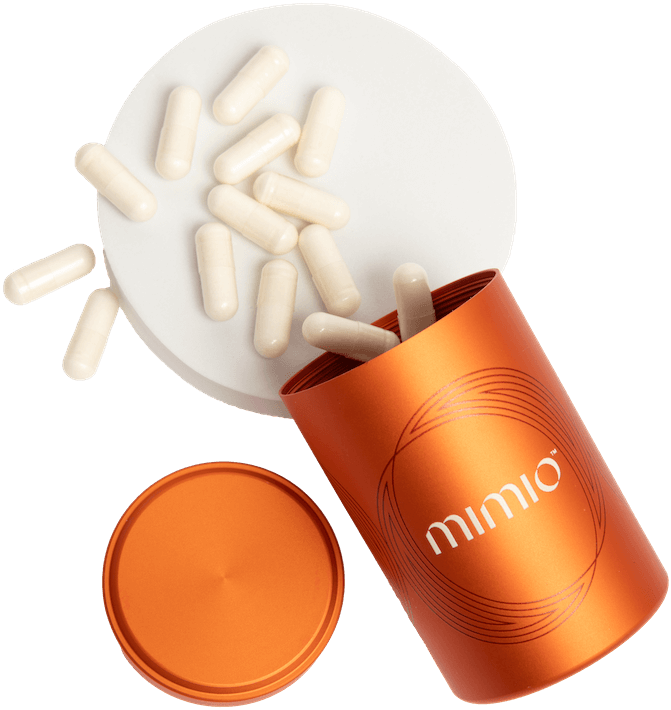Energy Vitamins for Men: Stay Energized with These Powerful Nutrients
Life’s demands don’t slow down, so why should you? Whether you’re tackling a long workday, chasing after kids, or aiming for a personal best at the gym, staying energized is non-negotiable. While coffee and energy drinks might offer a temporary boost, the secret to sustained vitality lies in your body’s nutritional foundation. Enter: energy vitamins for men.
In this guide, we’ll explore the essential vitamins and nutrients that fuel men’s energy levels, their roles in metabolism, and how to incorporate them into your daily routine.
Why Energy Levels Drop in Men
Energy levels fluctuate for several reasons, many of which are tied to nutritional deficiencies or lifestyle factors.
Common Causes of Low Energy in Men:
-
Nutrient Deficiencies:
-
Missing out on key vitamins like B12, vitamin D, and magnesium can disrupt energy production.
-
Poor Sleep:
-
Insufficient sleep affects cellular repair and energy restoration.
-
Hormonal Changes:
-
Testosterone levels naturally decline with age, leading to fatigue and reduced vitality.
-
Stress:
-
Chronic stress increases cortisol, which can drain energy reserves.
-
Sedentary Lifestyle:
-
Physical inactivity reduces circulation and metabolic efficiency.
By addressing these factors—starting with proper nutrition—you can reclaim your energy and keep it steady throughout the day.
The Top Energy Vitamins for Men
1. B Vitamins
-
Why They’re Essential:
-
B vitamins are a group of nutrients that play a central role in energy metabolism by converting food into fuel.
-
Key Players:
-
B12: Supports red blood cell production and neurological function.
-
B6: Regulates mood and reduces fatigue.
-
B1 (Thiamine): Helps convert carbohydrates into energy.
-
B3 (Niacin): Assists in energy production at the cellular level.
-
Sources:
-
Meat, fish, eggs, whole grains, and fortified cereals.
-
Supplement Tip:
-
Consider a B-complex supplement for a full-spectrum boost.
2. Vitamin D
-
Why It’s Important:
-
Known as the “sunshine vitamin,” vitamin D regulates calcium levels and supports muscle function and energy production.
-
How It Boosts Energy:
-
Low levels of vitamin D are linked to fatigue and muscle weakness.
-
Sources:
-
Sunlight, fatty fish, fortified milk, and supplements.
-
Fun Fact:
-
Men who spend time outdoors often report higher energy levels thanks to improved vitamin D production.
3. Vitamin C
-
Why You Need It:
-
Vitamin C isn’t just for immune health—it also helps produce carnitine, a molecule that transports fatty acids into cells for energy production.
-
Energy Benefits:
-
Fights oxidative stress and supports adrenal health, which can improve energy levels.
-
Sources:
-
Citrus fruits, bell peppers, strawberries, and broccoli.
4. Magnesium
-
Why It’s Critical:
-
Magnesium is a cofactor in over 300 enzymatic reactions, including those involved in energy metabolism.
-
How It Helps:
-
Supports muscle relaxation, reduces fatigue, and aids in ATP production (your body’s main energy currency).
-
Sources:
-
Nuts, seeds, leafy greens, and whole grains.
-
Tip:
-
If you’re active, your magnesium needs may be higher due to loss through sweat.
5. Iron
-
Why It Matters:
-
Iron supports the production of hemoglobin, which carries oxygen to your cells.
-
Who Needs It:
-
Men with low iron levels often experience fatigue and poor exercise performance.
-
Sources:
-
Red meat, beans, lentils, and fortified cereals.
6. Coenzyme Q10 (CoQ10)
-
Why It’s Powerful:
-
CoQ10 is an antioxidant that helps generate energy in your cells.
-
How It Works:
-
It supports mitochondrial function, ensuring efficient energy production.
-
Sources:
-
Organ meats, fatty fish, and supplements.
7. Zinc
-
Why It’s Vital:
-
Zinc plays a role in testosterone production and immune health, both of which affect energy.
-
Sources:
-
Shellfish, beef, pumpkin seeds, and chickpeas.
How Vitamins Impact Energy Production
Cellular Energy Pathways
Energy production happens at the cellular level, primarily in the mitochondria. Here’s how vitamins fit into the process:
-
Glycolysis:
-
Carbs are broken down into glucose, with B vitamins aiding the process.
-
Citric Acid Cycle (Krebs Cycle):
-
B vitamins and magnesium help convert glucose and fatty acids into ATP.
-
Electron Transport Chain:
-
CoQ10 plays a key role in generating ATP.
When you’re deficient in essential nutrients, these processes slow down, leading to fatigue.
Beyond Vitamins: Supporting Nutrients for Energy
-
Omega-3 Fatty Acids:
-
Found in fish like salmon, omega-3s reduce inflammation and support brain and muscle function.
-
Selenium:
-
Protects cells from oxidative stress and supports thyroid health.
-
L-Carnitine:
-
Transports fatty acids into cells for energy production.
-
Adaptogens:
-
Herbs like ashwagandha and Rhodiola Rosea help manage stress and support stamina.
How to Incorporate Energy Vitamins Into Your Routine
-
Balanced Diet:
-
Focus on whole, nutrient-dense foods to get a variety of vitamins naturally.
-
Supplements:
-
Choose high-quality multivitamins or targeted supplements, especially if your diet lacks variety.
-
Consider Mimio Biomimetic Cell Care for cellular support and enhanced energy metabolism.
-
Timing:
-
Take B vitamins in the morning for an energy boost.
-
Magnesium and zinc can be taken in the evening to support relaxation and recovery.
Lifestyle Changes to Maximize Energy
Vitamins alone can’t work miracles. Pair them with these lifestyle habits for maximum impact:
-
Exercise Regularly:
-
Strength training builds muscle, which improves metabolic efficiency.
-
Sleep Well:
-
Aim for 7–8 hours of quality sleep to allow your body to repair and recharge.
-
Stay Hydrated:
-
Dehydration slows energy production and muscle function.
-
Manage Stress:
-
Chronic stress depletes vitamins and disrupts energy pathways.
Common Myths About Energy Vitamins
1. “Vitamins Give You Instant Energy.”
-
Vitamins don’t provide energy directly like caffeine but support energy production at a cellular level.
2. “You Can Get Everything From Food.”
-
While a balanced diet is ideal, factors like soil depletion and busy lifestyles can make supplementation necessary.
3. “More is Always Better.”
-
Excessive supplementation can lead to toxicity or imbalances. Always follow recommended doses.
Sample Daily Energy-Boosting Plan for Men
Morning:
-
Breakfast: Scrambled eggs with spinach, whole-grain toast, and avocado.
-
Take a multivitamin with B vitamins and Mimio Biomimetic Cell Care for cellular support.
Midday:
-
Lunch: Grilled chicken salad with quinoa, walnuts, and a citrus dressing.
-
Hydrate with water or green tea.
Afternoon:
-
Snack on Greek yogurt with chia seeds and berries for sustained energy.
Evening:
-
Dinner: Baked salmon with roasted sweet potatoes and steamed broccoli.
-
Take magnesium to support muscle relaxation and recovery.
Unlocking Sustained Energy
Energy is the foundation of an active, fulfilling life, and ensuring you’re getting the right vitamins is a game-changer. From B vitamins and magnesium to powerhouse supplements like Mimio Biomimetic Cell Care, these nutrients work to keep your body’s energy systems firing on all cylinders.
By combining a nutrient-rich diet with an active lifestyle, quality sleep, and stress management, you can reclaim your energy and stay ready for whatever life throws your way.



